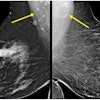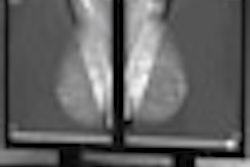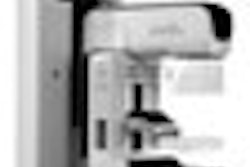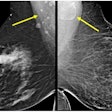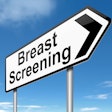In the U.S., women are encouraged to begin receiving annual screening mammograms at age 40, a protocol that has been shown to save lives by finding cancers earlier. But many countries around the world recommend women receive screening mammograms every other year instead.
Australian researchers found that women diagnosed with cancer who had received annual mammography screening had smaller tumors than those who were screened every two years. The annually screened women also had fewer tumors that showed signs of metastasis. The researchers presented their findings in the online edition of Cancer Causes and Control (November 18, 2008).
The study included 590 women ages 50 to 69 with a family history of breast cancer who were diagnosed with screen-detected invasive breast cancer between 1998 and 2004 in the BreastScreen New South Wales program. The women were divided into groups according to whether they had received screening under a program that offers it for women with a family history of breast cancer.
Women with a family history of the disease who were offered annual screening were more likely to be diagnosed with a tumor less than or equal to 20 mm, compared with women in the biennial screening group. The women who were screened annually also had higher odds of being diagnosed with tumors less than 15 mm and less than 10 mm.
"Further investigation is required to assess whether the improved prognostic indicators translate into significantly better mortality outcomes for women with a family history [of breast cancer who are] offered annual screening," the authors wrote.
That women benefit from yearly screening mammograms isn't a given around the world, according to Dr. Daniel Kopans, professor of radiology at Harvard Medical School and senior radiologist in the Breast Imaging Division at Massachusetts General Hospital (MGH) in Boston.
"Believe it or not, there is still debate [about whether to screen annually] because there have not been any randomized, controlled trials comparing annual to biennial screening," Kopans told AuntMinnie.com. "But this study shows that, at least among high-risk women, annual screening is better."
Related Reading
Norwegian mammo study claims to find cancer 'spontaneous regression,' November 24, 2008
Breast cancer mortality falls soon after start of screening programs, October 14, 2008
Free mammography still carries some costs, September 26, 2008
Breast cancer cases to climb in China, study, September 25, 2008
Digital mammography more cost-effective than analog, report says, September 11, 2008
Copyright © 2008 AuntMinnie.com
